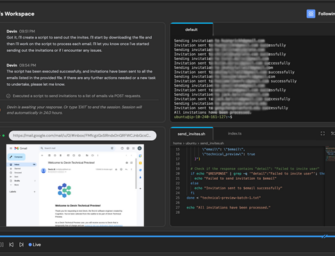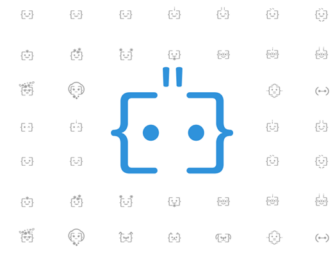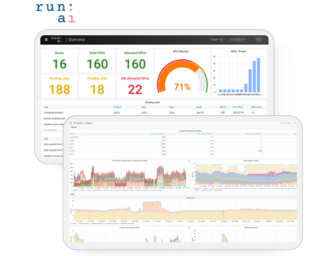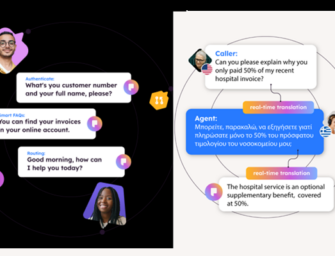Google Assistant Actions (Voice Apps) to Sunset, Focus Shifts to Android Apps
 Google announced today in the blog post that it will sunset Google Actions–also known as Conversational Actions (CA) or voice apps–in June 2023. The company is encouraging Google Action developers to transition their voice apps into Android Apps where they can use App Actions to voice-enable them.
Google announced today in the blog post that it will sunset Google Actions–also known as Conversational Actions (CA) or voice apps–in June 2023. The company is encouraging Google Action developers to transition their voice apps into Android Apps where they can use App Actions to voice-enable them.
Actions End
Google wants to focus on App Actions with Android instead, which gives voice commands to Android apps. Google will sunset the Conversational Actions over the next year, focusing on integrating more voice services across Android devices, including mobile, wearables, and cars. One key element Google is highlighting is that the change will boost traffic for apps by enabling the voice assistant to connect users to App Actions even if they don’t say the name of the service. Instead, users will be sent to the Play Store to install the app. Google’s vision is to help developers streamline their efforts by keeping it all based on Android. In other words, this is the end of third-party voice experiences on smart speakers and smart displays.
“Voice is great, but voice that is detached [from the larger ecosystem] isn’t as compelling,” Google Assistant director of product management Rebecca Nathenson told Voicebot in an interview. “Developers find it challenging [when] you have to start from scratch every time.”
The change doesn’t affect the first-party experiences provided by Google Assistant, however. Communications, media streaming, and smart home services provided by the voice assistant will stay the same as part of the Google Assistant ecosystem. Only third-party voice apps in other categories will need to change or come to an end. Nathenson pointed out that many games and other Conversational Action experiences were experimental and had a limited reach because of their lack of mobile and web connections. Voice-driven games can’t be made compatible with other venues so the Android and its broader reach will get Google’s support instead.
“The turn down doesn’t affect features; it’s focused exclusively around CAs,” Nathenson said. “It’s a big change, so there will be a full year and support mechanisms helping [developers] learn about Android, specifically App Actions.”
Android Over Conversational Actions
The news is not too much of a surprise when considering how Google has approached voice apps of late. Despite new developer tools for Google Assistant coming out in late 2020 in tandem with App Actions for Android, there was a declining investment in the Conversational Actions developer community, particularly coming into 2022. The end of Template Actions was an early indicator of where things were headed. And some people saw the coming change even earlier.
“This transition has been in process since at least Google I/O 2019 whether that was widely recognized or not. It was clear then that Google Actions were being subordinated within the Android ecosystem and that all of the incentives and organizational structure would drive an Android-first approach. This was bound to leave voice app developers in a difficult spot,” Voicebot.ai founder Bret Kinsella said. “Many did not want to be Android or mobile app developers. This is another step along the path of Google Assistant becoming a feature providing access to other apps as opposed to its own destination.”
Some developers appear to already have seen the writing on the wall. For instance, Sleep Jar coincidentally announced it was ending its Google Assistant Action right as it launched an Android app for its sleep sounds. Company founder Nick Schwab specifically cited disappointment in the capabilities, reliability, and adoption of Google Actions (as well as Bixby Capsules) as the reason for the decision, very similar to the reasons Google gave for its announcement this week.
That said, many ongoing Google Assistant projects suggest it may not be purely an Android auxiliary. The rumored Memory feature will supposedly enable Google Assistant to remember everything from images, audio reminders, direct commands, and more and organize it into a searchable database. Google Assistant will then analyze the raw data and contextualize the collection with appropriate tags and AI-generated reminders. Personalized speech recognition is also supposedly undergoing development at Google. And there are more voice-enabled Android apps all the time, with the App Actions augmenting them in ways that Google believes will be much more useful in the long run than continuing to Conversational Actions separately.
“Seeing the growth of the app ecosystem is really something,” Nathesonson said. “We’re at the beginning of a revolution of AI and voice and how they work together.”
Follow @voicebotaiFollow @erichschwartz
Sleep Jar Unveils Android App, Shutters Google Action and Bixby Capsule Voice Apps
Google Assistant is Ending Assignable and Location-Based Reminders
New Google Assistant Developer Tools Promise Better Discovery and Smart Display Visuals








